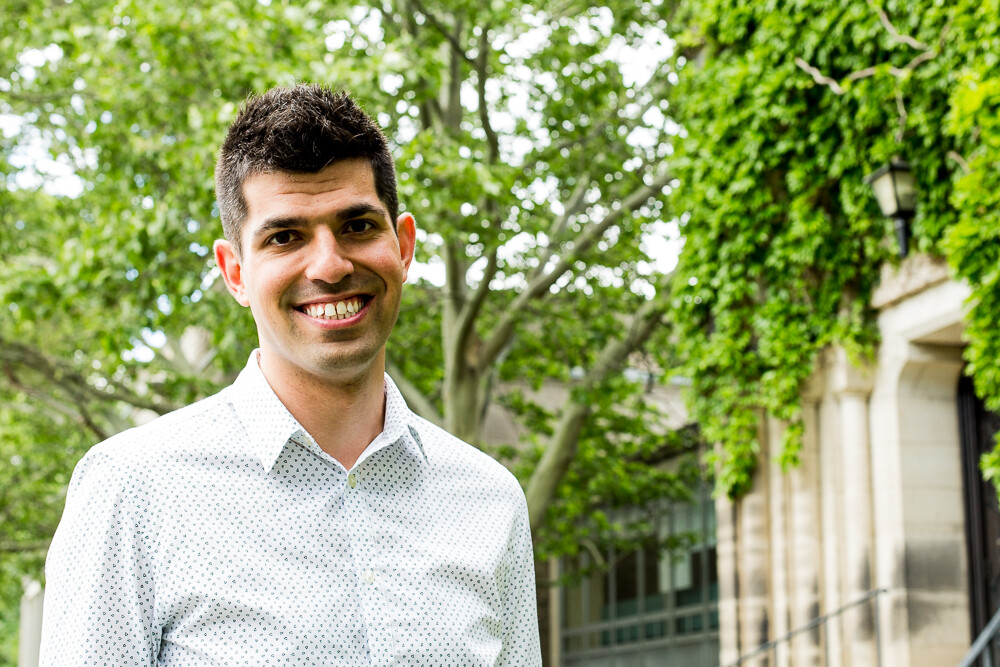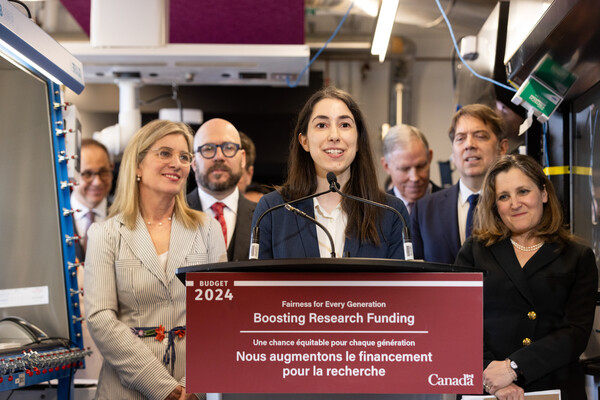Mobile Menu
- Education
- Research
-
Students
- High School Outreach
- Undergraduate & Beyond: Community of Support
- Current Students
- Faculty & Staff
- Alumni
- News & Events
- Giving
- About

Jim Oldfield
 Laboratory Medicine and Pathobiology student Sean McCurdy is graduating this week with a PhD in Bioinformatics. He is among 13,500 U of T students crossing the stage at Convocation Hall in ceremonies running from May 31 until June 16. Although he spent much of his doctorate in the lab and classroom, he also co-wrote a patent with a law firm, helped set up a clinical trial with a pharma company and created a big data strategy for a health care consulting firm to assess risk in patients taking statins. McCurdy spoke with Faculty of Medicine writer Jim Oldfield about his experience as a graduate student and burgeoning entrepreneur, and what his future may hold at the intersection of science, technology and business.
Laboratory Medicine and Pathobiology student Sean McCurdy is graduating this week with a PhD in Bioinformatics. He is among 13,500 U of T students crossing the stage at Convocation Hall in ceremonies running from May 31 until June 16. Although he spent much of his doctorate in the lab and classroom, he also co-wrote a patent with a law firm, helped set up a clinical trial with a pharma company and created a big data strategy for a health care consulting firm to assess risk in patients taking statins. McCurdy spoke with Faculty of Medicine writer Jim Oldfield about his experience as a graduate student and burgeoning entrepreneur, and what his future may hold at the intersection of science, technology and business.
Congratulations on your convocation. What have you been up to since you finished your doctoral work?
Well, my true passion is to start a business, and I began working on that toward the end of my PhD. The basic idea is to mine publically available data to discover new diagnostics and early interventions for neurological diseases and cancer. It goes beyond my work in Professor Rod Bremner's lab by applying machine learning algorithms for personalized therapies and finding faster methods for drug discovery. Along the way, I've had to learn new programming languages to generate and scale these algorithms for distribution. These algorithms can, for example, blindly identify almost any tissue in the body and determine if there’s a disease like cancer in it with a just a small RNA sample. I also have a massive library of algorithms, which predict responses to thousands of drugs and natural products.
How are you handling the business side of this start-up?
I learned some aspects of business development as a grad student, dealing with lawyers at Norton Rose Fulbright on a patent and working at IMS Brogan as a big data analyst to help improve the performance of health care companies. But I also did a Mini MBA at U of T earlier this year. That was a great learning experience in terms of business fundamentals but also for connecting with people who know how to move business ideas forward. And the instructors and other students had diverse backgrounds, so I got to see how people from different fields approach the same problem. Since then I've been travelling a lot — Beijing, Shanghai, Ottawa, Boston, San Francisco, talking to venture capitalists and business experts. I've been offered a substantial amount in seed funding and more investment looks likely. It’s really exciting!
What other factors have shaped your career trajectory?
For me, the PhD was critical because it offered opportunities to try different things, from hypotheses and lab experiments to new technologies and experiences. Outside the lab I learned about business, entrepreneurship and teaching. I'm really happy about my transition from biology to biotechnology to technology, and my program gave me enough time to make that transition — because it takes time for new programming languages and business principles to sink in. As well, the staff in my department, Laboratory Medicine and Pathobiology (LMP), were really helpful and top-notch. Time and time again, LMP staff have been patient and supportive, especially with me (I’m kind of a procrastinator). While my supervisor and thesis committee cultivated me as a scientist, they also entertained ideas I had about projects outside of science. I feel like the Faculty is moving more toward catering to students who are pursuing careers outside of academia.
I've seen your Instagram page (@seanmccrdy), and clearly you find time to eat. When did you become such a foodie, and what do you recommend these days?
I’ve always loved food. One of my favorite things to do is walk around the city and check out new food spots. Any time I’m in town, I always stop over in Kensington and get an octopus taco — it’s so good! And, you can’t beat indulging in Toronto’s up-and-coming Thai food scene.

